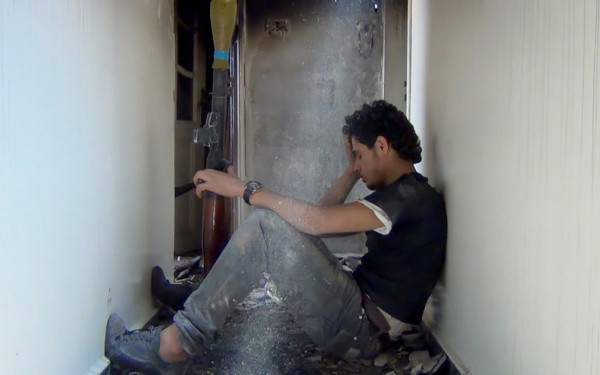Canada’s Racist Roots Unearthed in Ninth Floor
Documentary Exposes 1969 Sir George Williams Affair
Mina Shum and Selwyn Jacob’s documentary Ninth Floor challenges the Canadian ethos of multiculturalism with its discussion of racist incidents at Sir George Williams University, Concordia University’s predecessor.
For most Canadians, the extent of racism education is an image of Canada as the terminus of the underground railroad, an escape route for American slaves. Few are taught about the Sir George Williams Affair when allegations of racism against a university professor ended in the occupation of the Hall building in 1969. As flames tore through the broken windows of the Hall building’s ninth floor with black protesters trapped inside, a white passerby yelled “let the n——-s burn.”
“The idea of racism in Canada is not something that was accepted or acknowledged, and once you don’t acknowledge something you can’t really solve the problem,” explained Selwyn Jacob, producer of Ninth Floor.
Selwyn Jacob immigrated from Trinidad in 1968. He was a student at the University of Alberta at the time of the events. The moment he heard about the affair, he wanted to make a film about it. For political and personal reasons, the film’s production and screening was delayed until its premiere at the Toronto Film Festival in September 2015.
“Back in the 70s, if I was to approach any of the cultural gatekeepers and say I wanted to do a film on this topic, it wasn’t something that people would be willingly accepting of,” said Jacob. “So I think the story sort of languished in the basement of the culture so to speak, and then people sort of hoped it would disappear.”
Jacob became a producer in 1997 with the National Film Board of Canada, a national institution charged with producing and distributing media content which provokes “discussion and debate on subjects of interest to Canadian audiences and foreign markets.” His employment with the NFB created a conflict of interest during his tenure there, which prevented him from directing the film.
Jacob perceived an opening for the production of the documentary when Canada began to confront its racist past.
“All of a sudden there seems to be a watershed moment where people are talking about what happened in residential schools,” said Jacob. Canada’s acknowledgement of the horror of the residential school system’s internment of Aboriginal children is a step toward a national discussion about racism.
Back in 1969, the occupation of the Hall building was the first time occupation was used as a protest tactic in Canada, said Jacob. At that time, the occupation was not seen as legitimate. The same tactics were used in Montreal during the 2012 student protests, which Jacob suggested made a film on the events of the Sir George Williams affair more palatable to the current audience.
Ninth Floor’s Montreal premiere in October of last year at the Festival du Nouveau Cinéma screened in the auditorium where in 1969 Sir George William’s professor Perry Anderson’s tribunal took place.
“I’m always very nervous when we’re dealing with a film like this and you want to make sure that you get it right,” said Jacob. “When we screened it at Concordia for the FNC festival, that was the highlight of my filmmaking career. When the audience stood up and applauded, I got a sense that the film spoke not only to the community at large and all the subjects of the film who were [there]. It means that you’ve succeeded at reaching your audience.”
Decades after slurs and death threats were launched towards students of colour protesting against an allegedly racist professor, the redemption of the protesters began in the exact building where it all started.
While this moment highlights a shift in racial relations since 1969, racism is still ingrained in Canadian and Montreal culture.
“There is often a myth in Canadian society and Quebec society in Montreal that we don’t do those things, we don’t behave that way,” said Nantali Indongo who is featured in the film as the daughter of Kennedy Fredericks, one of the original complainants against the university.
Indongo hopes that if Concordia University were confronted with the same situation today, that it would act differently. However, she still experiences and witnesses the same pushback that her father and the original complainants experienced upon launching their allegations.
“I’ve seen, heard, and witnessed situations in other kinds of institutions, like workplaces, where someone feels that they are in an environment that is racist, and they are told ‘you’re exaggerating,’” said Indongo.
“We don’t really understand what racism is about. It’s not about you calling me a nigger, it’s not about you’re white and I’m black. It’s about who has power. It’s about who has the ability to change the next person’s fate and who is associated with or aligned with that power.”
The documentary features cinematic, stylized interviews with some of the original complainants, such as Rodney John, who felt like a stranger upon his arrival from the Caribbean.
“The essential quality of the community was a coldness,” said John in the film, as snowflakes fall upon him in the Montreal winter. Mina Shum’s creative direction makes the difficult subject matter easier to digest and a pleasure to watch.
Shum and Jacob were able to secure an impressive amount of archival footage from the Concordia University vaults. Jacob notes that he tried to assure the administration at Concordia that the film wasn’t about pointing fingers at people. He showed the film to them to make sure that if there would be anything that might be difficult for them, they would be prepared to deal with it in a public situation.
Once the university watched the film, they opened their archives to the filmmakers, some of which had never been seen before.
Ninth Floor // Opens Friday, Jan. 15 at 7:30 p.m. and runs until Jan. 21 // Cinema du Parc (3575 Parc Ave.) // $12.50 ($11 for 14 to 25 year olds)



_600_375_90_s_c1.jpg)